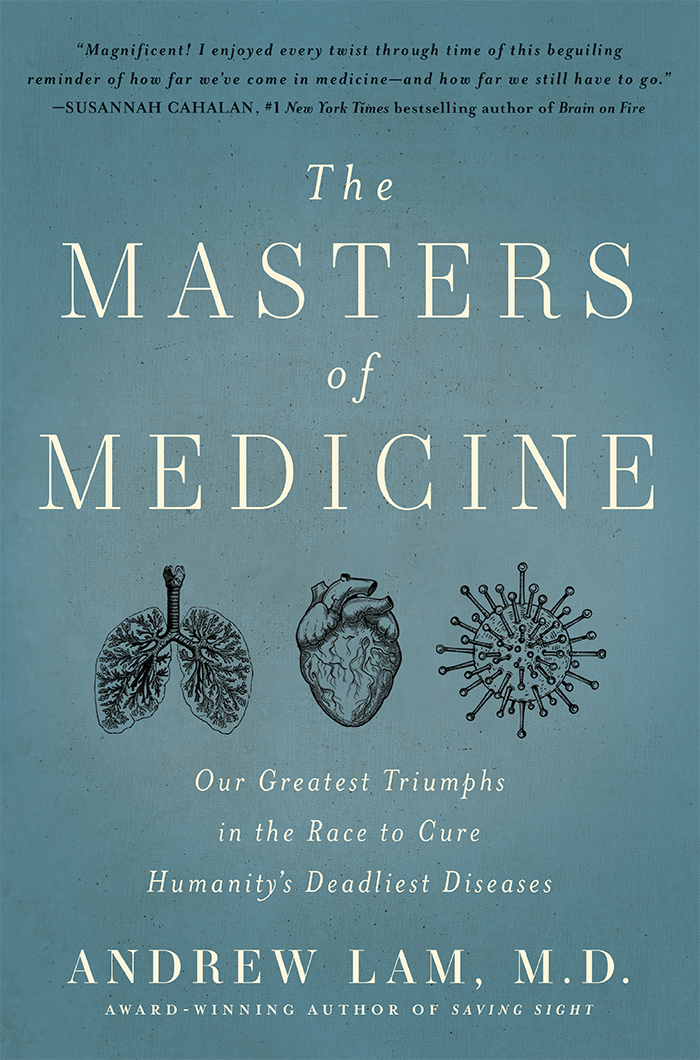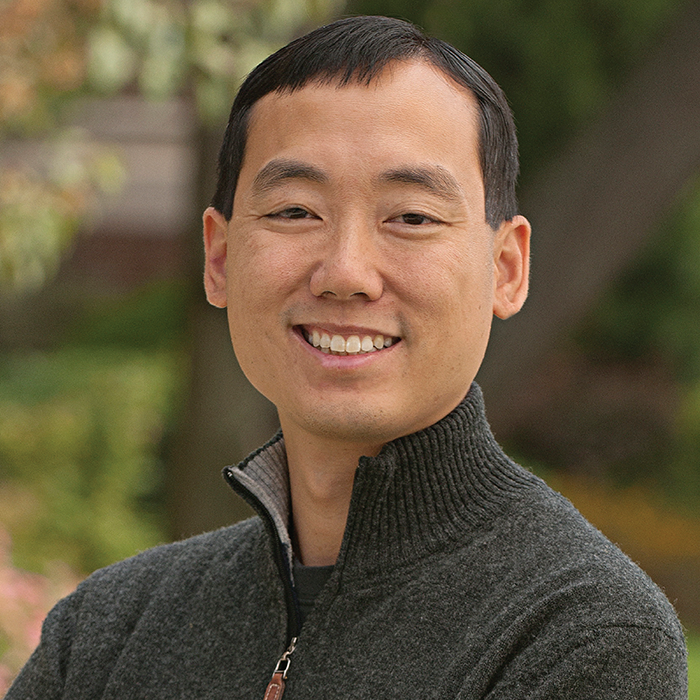
The idea of being a writer occurred to me during my residency at Wills Eye Hospital in Philadelphia. I remember the actual moment – it was about 2 a.m. in the emergency room and the flow of patients had finally started to die down. I was tired and sort of daydreaming. I had an unusual thought: “Isn’t it a pity that I can’t share all that I learned in college about World War II in China with other people?” I had studied this at Yale and considered the war in China an unmined aspect of the war that most people did not know about – many Americans and British were not aware of what our servicemen did in that theater of the conflict. But I was a busy resident, with kids, and did not have the time necessary to write a non-fiction book. And then I thought, “What if I wrote a novel?”
I could write an epic war novel and use that to convey the history I was so passionate about with readers. And so I wrote my first book, Two Sons of China, in my spare time over the course of many years. I got an agent and a book deal. That novel came out in 2014 and was a Foreword Reviews Book of the Year.
When you have a literary agent you suddenly start spending a lot of time thinking, “What else could I write about?” I had been a very historically-minded ophthalmology resident. I loved learning about Sir Harold Ridley (intraocular lens), Charles Kelman (phacoemulsification), Charles Schepens (father of retina surgery), Arnall Patz (ROP), and others who transformed our field and saved the sight of millions. Their stories were as riveting as any Hollywood blockbuster movie – full of grit, perseverance, setbacks, and serendipity. Ridley’s discovery (after examining a downed RAF pilot with plexiglass in his eyes during the Battle of Britain) was actually the worst thing that could have happened for his career – his newfangled idea was poorly received and caused him to be ridiculed, ostracized, and labeled a heretic. I interviewed Ridley’s son Nicholas who told me his father’s failed career and ensuing depression “tore our family apart.” Moments like this convinced me that people needed to know the stories of such unsung medical heroes.
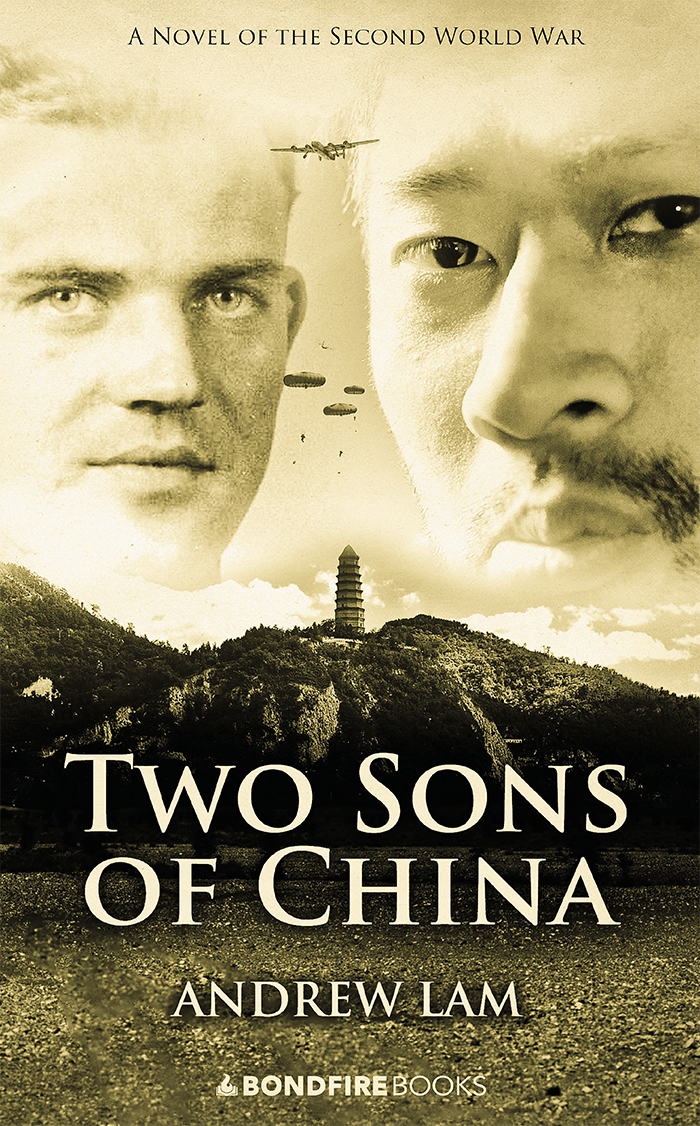
My agent did not initially feel a book about ophthalmology’s heroes would be a very marketable one, but I did not want to give up on this idea. So, I thought of a way to make the book more attractive – by blending my own memoir as a surgeon-in-training with the historical stories. I could take readers into the operating room to see what it’s like to save sight, what it’s like to come up against complications in the operating room, and what it’s like when surgeons feel uncertain or even terrified in these difficult moments. The resulting book, Saving Sight, got a book deal faster than my novel – such that it actually came out in 2013, a year before Two Sons of China. Saving Sight became an Amazon bestseller and has been my most successful book to date. I still get emails from people all over the world who tell me the book inspired them to go into ophthalmology, which is very gratifying.
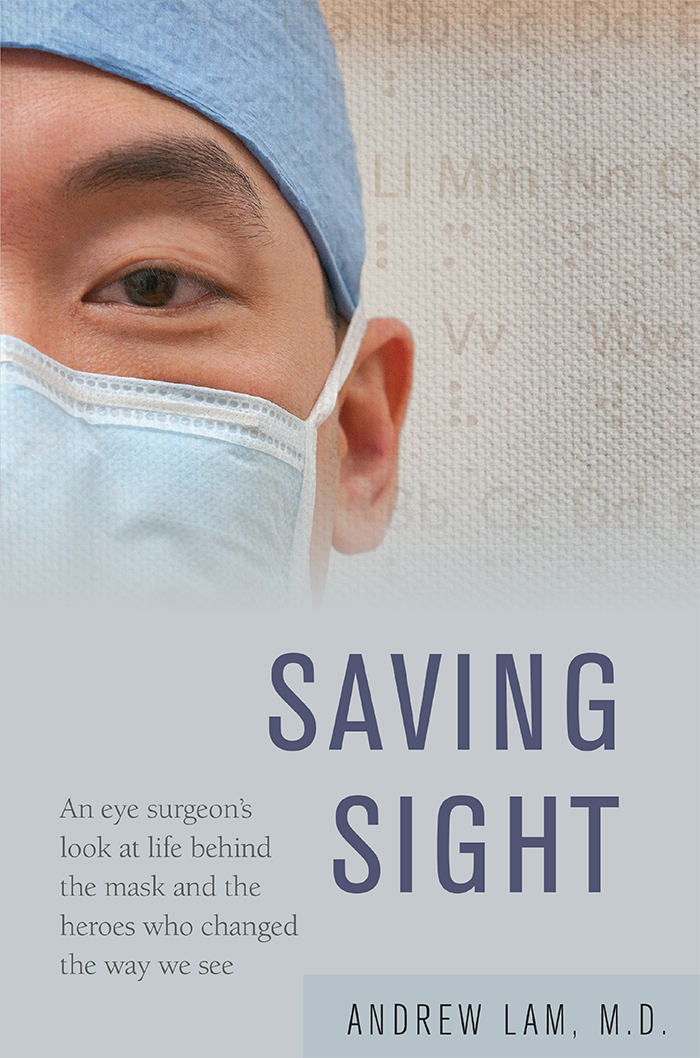
In 2019, I published another WWII novel called Repentance, about the heroic story of Japanese Americans who fought with valor in Europe while many of them had families unjustly incarcerated in internment camps back home. This book was a finalist for the Massachusetts Book Award. But ever since the success of Saving Sight, many people suggested I should do the same kind of thing for “the rest of medicine.” But of course, I was quite busy in my practice and raising our four kids, so I didn’t really have time to explore this – until the pandemic.
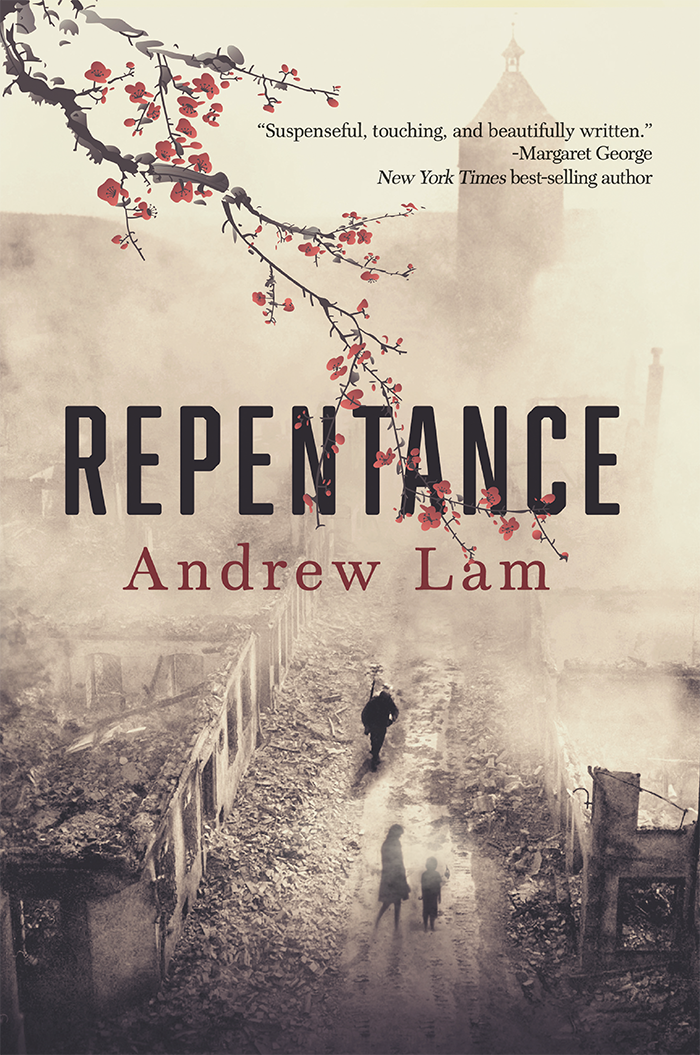
Like many doctors who were having to see patients in the early days of the pandemic, I was quite worried about bringing COVID-19 home to my family. So for weeks I semi-quarantined in my home and stayed in a guest bedroom most of the time. During that period, I had far more time than usual and began to read about the history of cardiology and the numerous mavericks who made serendipitous discoveries and sometimes risked their own lives to make advances. Then I read about the discovery of insulin, and how the Canadian co-discoverers hated each other so much that one almost refused his Nobel Prize because he was so mad that his co-discoverer was also going to get one! I was hooked. I wanted to write about more unsung medical heroes who weren’t well known but deserved to be. Their stories were not just inspiring, they were full of human drama and emotional failings, such as envy, arrogance, and self-interest, which often marred their triumphs. This effort became The Masters of Medicine (2023), my latest book.
In this book, I share the stories of the greatest breakthroughs in modern medical history and show that, often, advances depended on unconventional mavericks and fleeting moments of rare insight. Medical progress is not inevitable nor guaranteed. It moves forward in fits and starts and depends on brilliant minds who are open to recognizing solutions to questions no one had previously thought to ask. My hope is that the book inspires people. And a secret wish is that young people will read it and be spurred to pursue science or medicine. If only one reader does this and someday makes a discovery that helps us all, the work I put into the book will be entirely worth it.
I’m often asked to choose my own favorite stories from The Masters of Medicine, which is almost impossible. But here are three that stand out in my mind:
- In 1929, Werner Forssmann was a German medical intern who got the crazy idea to thread a catheter from a vessel in his arm to his heart because he’d read an article about it being done in a horse. Unable to get official permission to try this dangerous stunt which seemed likely to cause arrhythmia and death, Forssmann hatched a plot to catheterize his own heart. He had to fight off a friend who tried to pull the catheter out of his arm as he was hurrying to the x-ray machine. The first x-ray showed the tip of the catheter at the head of the humerus. He advanced it farther and the next image showed it in the heart. And he wasn’t dead. Forssmann had shown it was possible to catheterize a beating heart – a feat that later led to arguably the greatest new medical procedure of the 20th century – coronary artery angioplasty.
- Another great story, one of serendipity, was the disaster at Bari in 1943, in which a Luftwaffe bombing raid surprised and decimated an Allied fleet at Bari harbor in southeastern Italy. One American Liberty ship held a secret cargo of mustard gas. At the time, the Geneva Convention held that the use of poison gas was illegal but not the possession of such gas. An explosion on board that ship sent tons of mustard gas into the environment and hundreds of sailors and civilians were mysteriously sickened with severe chemical burns and temporary blindness. The US Army tried to cover up the entire fiasco, but an astute army doctor named Stewart Alexander correctly deduced he was dealing with wounds from a chemical attack. Alexander noticed something peculiar about the mustard gas victims – their white cell counts were extremely low. He wondered if the chemical could be used to treat diseases of WBC overproduction, such as leukemia or lymphoma. This observation later led to a form of nitrogen mustard – mechlorethamine (Mustargen) – becoming the very first cancer chemotherapy drug.
- Finally, stories of rivalry abound in medical history. Two of the most intense and meaningful were between Robert Koch and Louis Pasteur, and between Jonas Salk and Albert Sabin. Koch and Pasteur engaged in mutual public attacks at medical meetings and in published journals. Salk and Sabin disliked each other and disparaged each others’ polio vaccines. In both instances, humanity benefited from these men’s competitiveness; they were driven to work harder and faster to outdo each other.
Building a platform
I am often asked why and how I became a writer. I wanted to write because I love history and sharing fascinating stories with others. When colleagues tell me about their own writing aspirations I always encourage them to forge ahead because writing is a beneficial creative outlet, and it’s important to pursue our interests outside of medicine because this helps avoid burnout.
Sometimes I am asked for advice on building a platform. I urge those who feel passionate about sharing their insight or expertise on any subject, medical or non-medical, to do so. This could be through writing, blogging, podcasts, public speaking, or simply being active on social media in ways that educate others.
Being an author gave me a platform to write about other topics that I care about. I have written on subjects as wide-ranging as affirmative action and WWII history, in publications as varied as the New York Times, the Washington Post, ophthalmology publications, and my local newspaper. Often the best way to begin building a platform is to start in your local community. It is easy for physicians, as trusted experts, to opine on medical topics, for example.
Every ophthalmologist I know has a passion outside of work. This may be a dedication to family, youth sports, running, charity work, travel, or music. Avid pursuit of these interests makes us happier and healthier. They enrich our lives through connections to our communities and provide valuable perspective outside of ophthalmology. And I believe all of these things make us better doctors.
For more information on the author and his books, visit www.AndrewLamMD.com
